Authors:
Historic Era: Era 4: Expansion and Reform (1801-1861)
Historic Theme:
Subject:
Summer 2022 | Volume 67, Issue 3
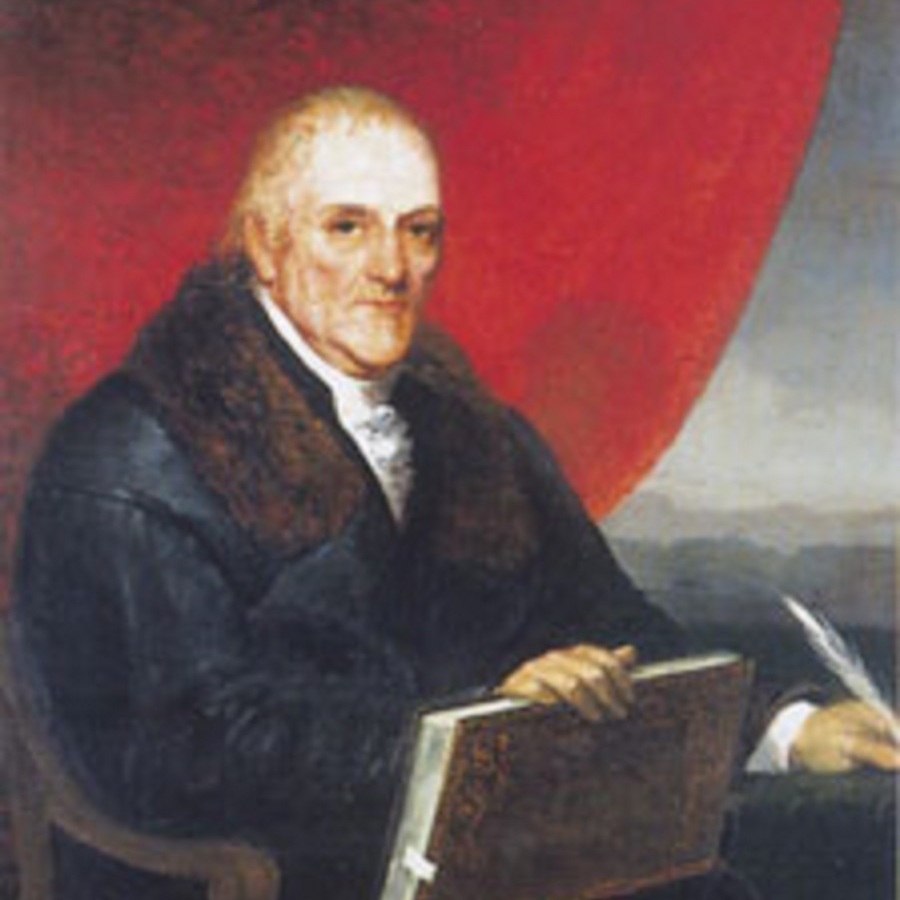
Authors: Howard Jay Smith
Historic Era: Era 4: Expansion and Reform (1801-1861)
Historic Theme:
Subject:
Summer 2022 | Volume 67, Issue 3

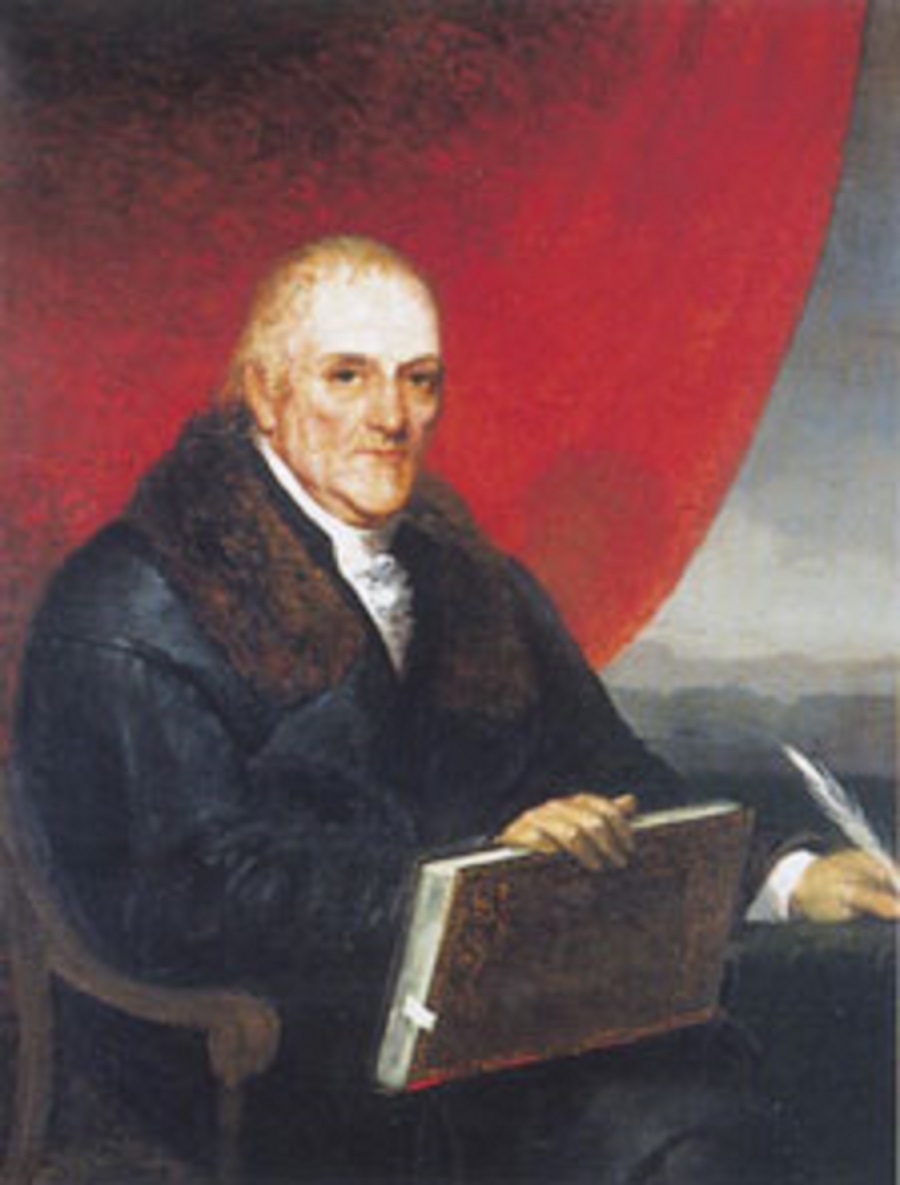
Editor's Note: Howard Jay Smith is also the author of Meeting Mozart: From the Secret Diaries of Lorenzo Da Ponte, a novel inspired by that missing section of Da Ponte’s memoirs.
In 1806, Clement Clark Moore, a young professor of Greek and Biblical studies, had a chance encounter with a recent immigrant that forever altered the cultural history of early modern New York and, by extension, our new nation, then barely 30 years old.
Moore is perhaps most famous for writing a poem that opens with, “’Twas the Night Before Christmas.” More significantly, though, he was a professor at Columbia College – now Columbia University – and the son of Benjamin Moore, the Episcopal Bishop of the Diocese of New York and the president of Columbia.
The meeting occurred at Riley’s Booksellers, on lower Broadway, just two blocks south of Union Square. Riley’s location is now that of the Strand Bookstore.
Who did he meet? Lorenzo Da Ponte, an Italian immigrant by way of Venice, Vienna, and London, whom Moore would later learn had been the librettist of Mozart’s greatest operas.
And when Moore, in the course of their conversation, was unwise enough to disparage the current state of Italian literature, Da Ponte not only delivered what was purportedly a long oration on the glories of Italian poetry; he finished with a suggestion that he himself was available to teach the subject.
At the time of their first encounter, the fifty-seven-year-old Da Ponte, who had been born Jewish in a small village near Venice, was struggling to make ends meet as an entrepreneur.
Along with his wife, Nancy, Da Ponte ran what one might call the first Jewish deli in America. It was in fact a dry goods and provisions store across the river in Elizabethtown, New Jersey, where the Da Pontes sold pots and pans, bolts of fabric, and bars of soap, as well as all the fixings for a pretty fair Rueben sandwich. At Da Ponte’s, you could buy cans of corned beef, sacks of rye flour, wheels of Swiss cheese, sauerkraut by the barrel, kegs of dill pickles, and of course, tins of dried mustard powder.
During their chance meeting, Clement Moore, then only twenty-seven, was enchanted by this man who had not only collaborated with Mozart, but had been friends with Casanova, had met the great Italian poet Metastasio, and knew well the entire Hapsburg court, including its former Emperor, Joseph II.
As the two me conversed at great length about the classical and biblical roots of opera and literature, Moore, who
Three days after their conversation, Da Ponte began teaching Italian literature at Bishop Moore’s house. Endlessly dazzled by his erudition, the Moores facilitated the entrée of the Da Pontes into the rarified world of New York’s elite. Da Ponte’s frequent dinner companions included James Fenimore Cooper, Washington Irving, Samuel F. B. Morse, Williams Cullen Bryant, Henry Wadsworth Longfellow, and even Joseph Bonaparte, Napoleon’s brother, the former King of Spain, who was then living in exile as the self-styled Comte de Survilliers.
In the years that followed, however, not only would Da Ponte teach the Italian language and literature to the children of the New York aristocracy; he also cultivated the financial assistance of his friends to establish the first two opera companies in New York, ones that eventually paved the way for the preeminent opera theater in America, the Met.
Mozart's Jewish "Priest"
So, who was Lorenzo Da Ponte, the man who not only wrote for Mozart, but also ended up before his death in 1838 as an integral part of the cultural history of early modern New York?
Without question, he is the single most important Jew in the history of opera, yet few people know the name of this writer who made it possible for Mozart to be considered one of the greatest opera composers of all time. Without Da Ponte’s libretti – the story and words – Mozart would have never been able to compose the three musical scores, Don Giovanni, The Marriage of Figaro, or Cosi Fan Tutte.
Nonetheless, for all Da Ponte’s brilliance in writing these works, behind his back, he was derogatorily referred to as “Mozart’s Jewish Priest.” Yes, he was born Jewish and, yes, he had been ordained a priest, but he never served Mozart in either capacity.
As a writer whose European family was murdered during the Holocaust at Ponary in Lithuania, I have always been attracted to stories that have a personal resonance. In researching Da Ponte, I found a central question that resonated with me: “How does a Jew survive in an essentially hostile world?”
Da Ponte was born Emanuele Conegliano in 1749 into working-class poverty in the Jewish ghetto of the village of Ceneda, not far from Venice, in an era when people wore Carnevale-style masks and costumes year-round. His family was so poor that
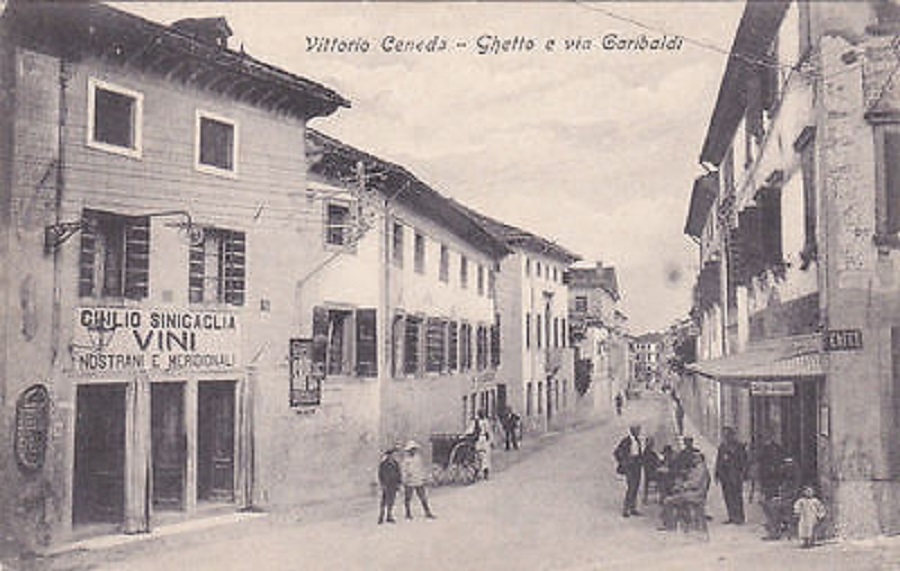
Although Da Ponte had his bar mitzvah at age 13, a year later, his father, a widower, married a Catholic woman. In order to do so, his father had to convert the entire family. This transformation from Jew to Catholic had severe consequences for Emanuele and his two younger brothers. They immediately moved out of the ghetto, and Emanuele was torn away from his Jewish community and his Jewish girlfriends. Like all such conversos, Da Ponte was forbidden – for the rest of his life – to have any contact whatsoever with any Jew, on the penalty of death, imprisonment, or a life of servitude in the galleys of the Venetian Navy.
He tried to make the best of a horrible situation, a survivalist trait that would serve him well throughout his life. He took the name of the local bishop doing the conversion and thus became Lorenzo Da Ponte. Given that he had never been to an actual school until age 14, Lorenzo convinced the bishop to allow him to attend Ceneda’s seminary. He caught up quickly. After two years, Da Ponte relates in his Memoirs (first translated in the 1920’s and later republished in 1957 by the New York Review of Books), he could write a fluent thesis in Latin. He also studied Greek and Hebrew, which he excelled in.
But his great passion was for Italian literature. In less than six months, he claims, he had memorized much of Dante, Petrarch, Ariosto, and Tasso. He wrote thousands of poems, imitating classical models – including those of the great contemporary Italian poet, Metastasio, “trying my hand repeatedly at every style of meter and composition, striving to imitate the most beautiful thoughts.” These years of training and writing, along with learning to do translations and adaptations, helped pave the path for his later work as a librettist.
Initially, little did he grasp that the end route of his studies was to become a priest. Such a career “was wholly contrary to my temperament, my character, my principles, and my studies.” Though he loved women and utterly rejected celibacy, even as a student – Lorenzo initially accepted this Devil’s bargain. He treated his priest’s robes as just another costume to wear.
In 1773, at the age of 24, he was ordained. A few months later, he was posted to a congregation in a city that was the Las Vegas of its day, a city where no vice was unknown: Venice.
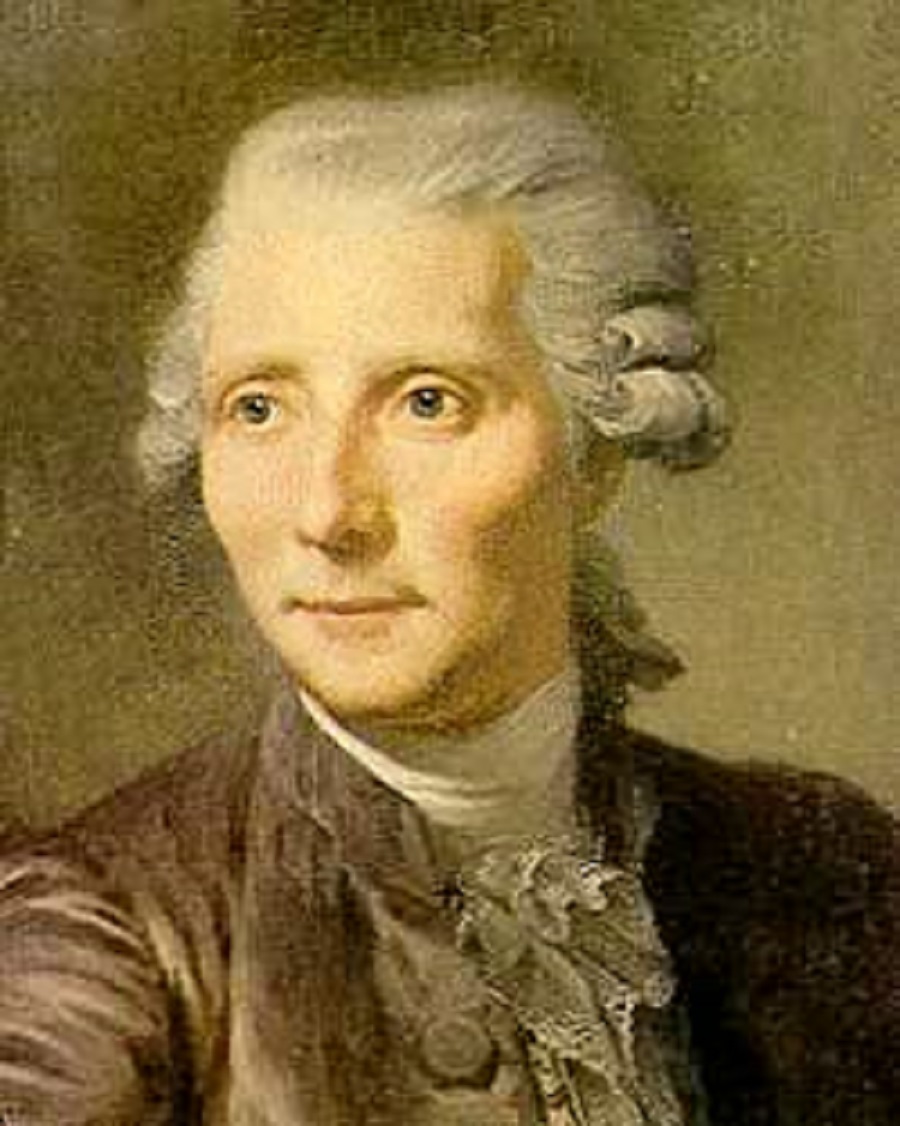
Venice
Da Ponte was assigned as an abbé at the Church of San Luca. Despite his great intellect and writing abilities, he cared not at all for church doctrine, and was by his own admission a terrible priest. On Sundays, the Abbé Da Ponte would hear confession, but on the other six days of the week, he would gamble, drink, write risqué poetry, and engage in wild affairs.
In the entirety of his Memoirs, there is not a single mention of anything related to the practice or dogma of Catholicism or, for that matter, Judaism. An entirely secular man, he had no attachment whatsoever to any religious beliefs, which perhaps made it easier for him to dress in the robes of a priest as if it were for Carnevale. “I was at the boiling point of youthful spirit. Eager and lively by temperament, and as everyone said, attractive in person, I allowed myself, through the customs and examples about me, as well as my own inclinations, to be swept away into a life of voluptuousness and amusements, forgetting or neglecting literature and my studies almost entirely.”
In Venice, Lorenzo counted the infamous Casanova among his closest friends – and Da Ponte did his very best to imitate the exploits of history’s most famous lothario. His Memoirs, which he wrote during his years in New York, were inspired by Casanova’s thousand-page recounting of his romantic exploits.
Although the once-powerful Venetian Republic was then in a rapid decline, the Venetians themselves lived a life of seemingly endless parties. Those with the means to afford it went every night, often in their Carnevale attire, to the many opera houses or gambling casinos, the ridotto, scattered about the city. In Sheila Hodges 1985 biography, Lorenzo Da Ponte: The Life and Times of Mozart’s Librettist, she explains that “masks were universally worn, and this gave the wearers a license that would otherwise have been impossible. It also led to a particularly classless society… Nobleman and beggar, artisan and poet, gondolier and visiting royalty mingled under the clear winter sky.”
The young converso priest was no exception. Da Ponte says that he devoted himself to “cards and love.” The first of his many mistresses, a married woman from one of the ancient families of Venice, was Angela Tiepolo. She was a petite and pretty woman with a violent temper, one whose husband had just left her, apparently for good reason. Although her family owned the Teatro San Benedetto, she was an impoverished noblewoman who shared a home on the Grand Canal with her equally dissolute twin brother. Both were gambling addicts. Da Ponte moved in with them and soon took on their passion for gaming. He wrote in the Memoirs, “I had conceived a very violent passion for one of the most beautiful, but at the same time, most capricious ladies of that metropolis. She occupied all my time in the usual follies and frivolities of
After a decade of such licentiousness, Da Ponte was ultimately denounced in 1779 as a Jewish heretic by another lover’s estranged husband and was ordered to stand trial. Although he never publicly spoke about his Hebrew heritage, others did. It was hardly a secret that he was a converso and thus was not considered fully “Catholic.” Casanova, who understood the forces that were being aligned against Da Ponte, urged him to flee Venice rather than risk being tossed into the infamous prison beneath the Bridge of Sighs. After he fled, he was tried in absentia and banished from the republic of Venice for fifteen years.
Meeting Mozart
Banned from his hometown and forbidden to associate with the Jewish community of his youth, Da Ponte once more reinvented himself as a professional writer. With help from friends, he turned up in 1781 in Vienna with a letter of introduction to Antonio Salieri, the Court Composer for the Hapsburg emperor, who in turn hired him as the Court Librettist. Over the course of his career, Da Ponte would write nearly thirty operas.

Given that, at this time, anti-Semitism was rife in Vienna, the Hapsburg’s imperial capital was not particularly welcoming to Jews. Da Ponte continued to hide his heritage as best he could behind that priestly façade. Vienna in fact had been the scene of one of the most brutal destructions of Jewish communities during the Middle Ages. In 1421, in an event known as the Vienna Gesera, the entire Jewish community was massacred when the Hebrew Temple was burnt to the ground with everyone inside. The remnants of that horrific event can be visited today several stories beneath the memorial in Vienna’s Judenplatz to the tens of thousands of Austrian Jews murdered more than five-hundred years later in the Holocaust.
Fortunately, through, another sympathetic converso, the Baron Raimund Wetzlar von Plankenstern, introduced Da Ponte to a struggling and brilliant composer who was desperate to break into the world of opera, Wolfgang Amadé Mozart. Finding in each other a companion of equal intelligence who also enjoyed good wine, great food, and dalliances with sopranos and other ladies of the opera chorus, the two became close friends.
At that point in his career, Mozart was stymied in his struggles to compose an opera – more specifically, one in Italian – for the Hapsburg Court Theater. Following his move to Vienna, also in 1781, Mozart was valued as a brilliant pianist and composer for the keyboard, but few considered him worthy as an opera composer. His experience paled in comparison to that other Italians dominating the stage,
Without Da Ponte’s extraordinary skills as a librettist, the Mozart we believe we all know today as an opera composer would simply not exist. It was in fact Da Ponte who created the concise, clear, strong plots and characters that were inspiring enough to embody the drama of Mozart’s music. Da Ponte gave the composer extraordinarily singable verse that was elegant, economical, and witty.
But all that alone was not enough for success. It also took Da Ponte’s insight into the levers of power at court and his talents at making persuasive arguments – skills he had honed as a priest – in order to obtain for Mozart the opportunity to compose an opera for the court theater.
It was Lorenzo’s brilliant arguments – and not Mozart’s – that convinced Emperor Joseph II that Da Ponte’s adaptation of a French play that had been banned and censored – The Marriage of Figaro – would make a perfect libretto. Why? Because he – Da Ponte – had the foresight to take out all of the offensive elements that had mocked the foibles of the aristocracy. Only after reading the libretto and being persuaded by Da Ponte did the emperor consent to listen to Mozart’s music.
Not only was Figaro a grand success; to this day, it is the oldest continuously performed opera in the world and ranks in the top five of most critics’ lists. Figaro led to a commission for Don Giovanni, the success of which encouraged Joseph II to personally commission Cosi Fan Tutte, an ever-popular sexual farce that mimicked not only Da Ponte and Mozart’s actual lives, but that of the emperor, as well.
Without the success of those three operas, Mozart would never have been asked to collaborate on The Magic Flute by Emanuel Schikaneder, nor would Prague’s Estate Theater have commissioned a redo of Metastasio’s The Mercy of Titus.
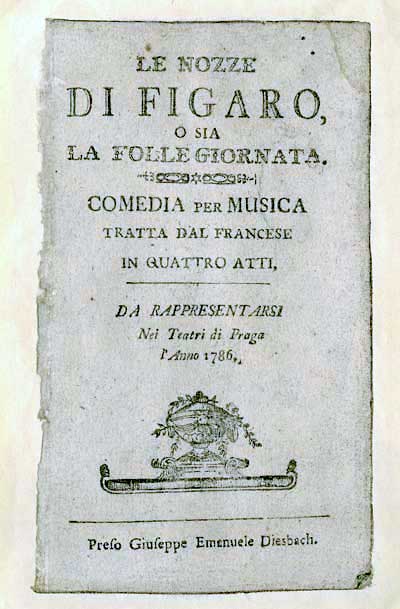
It has long been an axiom in the opera world – a false one – that great operas come about because of the composers who create the music and the singers who bring them to life. It is a convenient fiction and one that has long diminished the work of the writer. Without a libretto, there simply is no music and no songs. And without a strong and solid story and
Even Peter Shaffer, the playwright and eventual screenwriter of Amadeus, is guilty of this crime against his own fellow writers. He cut Da Ponte out of his script and falsely gave Mozart credit for convincing the Emperor to allow Figaro to be staged.
Why, we ask? In the nineteenth century, the deification of Mozart began as a way to explain his prodigious talents, and various myths were spread about him and how he used his God-like gifts to compose in his head as if by magic. It’s total nonsense, but the illusion has colored all we "know" of the man. He created Figaro; he created Don Giovanni; he created Cosi Fan Tutte. Nonsense, nonsense, and nonsense.
This diminishment of Da Ponte’s role took an even more sinister turn under the Third Reich. In Erik Levi’s book, Mozart and the Nazis, we learn that Da Ponte’s Jewish-Italian heritage was an affront to the Nazi Party, who were obsessed with promoting the Germanic notion of the ubermensch. To build up the Austrian-born and -reared Mozart into a Germanic hero, the Nazis under Goebbels insisted that all his operas be translated and performed in German and not their original Italian. Da Ponte’s name was banished from the record and replaced on opera title cards with those of the various translators who had converted his libretti into German. Furthermore, Da Ponte’s home village of Ceneda, now part of the city of Vittorio Veneto, was further targeted by the Nazis during their round-up and extermination of Jews in Italy.
Despite the fact that opera sycophants consistently diminish Da Ponte’s contributions to those three operas, we only have to look at the original source material for Don Giovanni – Tirso De Molina’s 1619 play The Trickster of Seville and the Stone Guest – to realize the extent to which it took a brilliant and skilled writer to turn De Molina’s slow-moving play into a seamless and fast-paced libretto. Don Giovanni and his other libretti worked wondrously and remain a part of the standard repertoire to this day only because of Da Ponte’s and Mozart’s combined talents.
Da Ponte’s genius was on a par with Mozart’s, and their friendship lasted until Mozart’s death. In fact, before Mozart’s demise, the two men had considered relocating to London together where they both believed the prospect of more opera commissions would come easily to them.
However, Da Ponte’s real-life escapades – and Jewish heritage – continued to get him into trouble with the Hapsburgs. When Joseph II died in the spring of 1791 and his brother Leopold took the throne, the outspoken Da Ponte found himself in trouble once more. An essay he had written to Leopold on the state of opera in Vienna was viewed as deeply offensive to the Emperor.
In the summer of 1791, at age forty-two, and after twenty years of philandering and sundry torrid affairs, Da Ponte snuck back into the Veneto and was married to his last girlfriend, another converso, by a rabbi. His new wife, Ann Celestine Grahl, known as Nancy, was the daughter of a successful merchant and moneylender. She was intelligent, learned, beautiful, sweet-natured, and in her twenties. In his Memoirs, Da Ponte claims they remained faithful to each other for the next forty years.
But on December 5th of 1791, before the Da Pontes were even able to reach London, Mozart died in Vienna. Da Ponte was devastated. His friend and partner was gone. Nonetheless, he persevered. For the London stage, he went on to write and produce another nine libretti over the next twelve years. But, without Mozart’s music, none of those works achieved any notable success. Nor did Da Ponte.
In her New Yorker magazine review of Rodney Bolt's biography of Da Ponte in 2007, "Nights at the Opera," Joan Acocella notes that: "Eventually, Da Ponte did what Europeans at risk for debtor's prison tended to do at that time: he emigrated to America. The year was 1805. Thomas Jefferson had just begun his second term as president," and Da Ponte was approaching his 56th birthday.
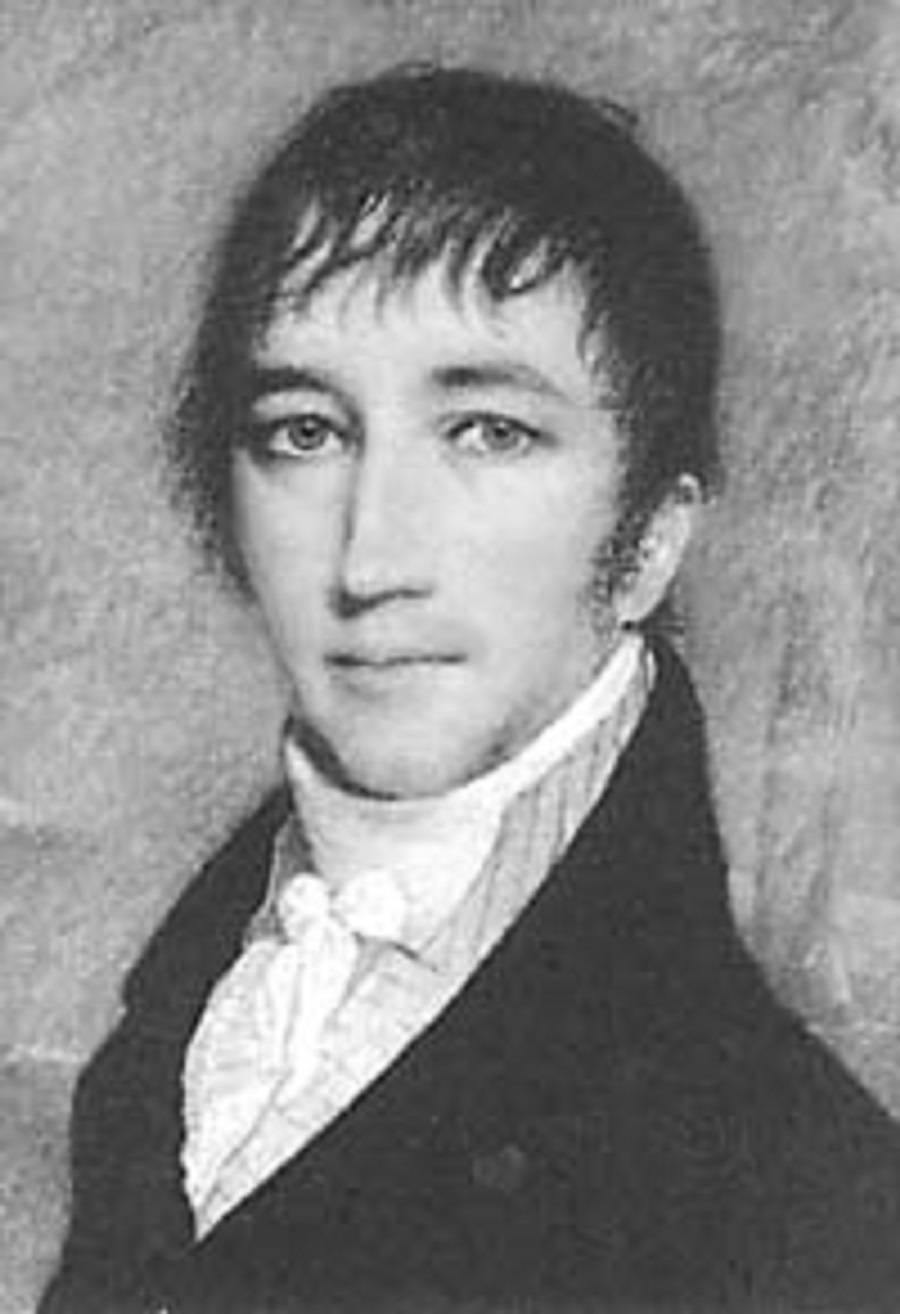
The Escape to America and New York City
Shortly after the chance encounter between Da Ponte and Clement Moore, a dinner invitation quickly followed; the Da Pontes were asked to join the Moores at their estate, Chelsea, then the largest such property in lower Manhattan. One can assume that, between the lines of his Memoirs, the invite came with one unspoken caveat: Da Ponte should make no mention of his “past life,” that is to say, his Hebrew heritage, in the presence of Moore’s father, the bishop, or their other guests.
Even in the New York of the early 1800’s, anti-Semitism among the upper classes was rampant and Jews – though few in number – were scarcely tolerated.
Still, it was Mozart, or rather Lorenzo’s collaborations with Mozart, that opened the doors of New York’s high society to him and his wife - doors that would have been barred had they simply been Italian-Jewish immigrants. In New York as in London, Da Ponte once again hid his Jewish heritage behind the façade of being a good Catholic. Had he not, he would have been shunned by a community where anti-Semitism was as much an accepted part of life as horse carriages, top hats, and shots of whiskey. But Da
Through their acquittance with the Moores, the Da Pontes were rapidly accepted into New York’s high society. Within weeks, Lorenzo quit the dry goods business and moved back to New York City. “Imagine,” he says in his Memoirs, “how I must have laughed at myself every time my poet’s hand was called upon to weigh out two ounces of tea, or measure half a yard of a ‘pigtail’ (chewing tobacco) now to a cobbler, now to a teamster.”
So, Lorenzo Da Ponte… a child of Venice who grew up in an era when –much like the characters in his operas –people wore masks and costumes year round, spent his life shielding his true identity from those around him. And yet, somehow, this chameleon, this creature of the theater, became an integral part, a building block, in the cultural foundation of early modern New York.
Within a few years of his meeting with Moore, Da Ponte and his connection to Mozart became well-known by many of the artistic giants of that era, the very men and women who defined that emerging and distinctive American culture of the 1800’s. In addition to the aforementioned Washington Irving, Samuel F.B. Morse, Williams Cullen Bryant, James Fenimore Cooper and Henry Wadsworth Longfellow, he counted among his friends New York’s most privileged families: the Livingstons, the Hamiltons, the Duers, the Ogilbies, the Verplancks, the Onderdocks, and Joseph Bonaparte. His youngest son, Lorenzo L. Da Ponte, married the niece of President James Monroe, Cornelia Durant.
Imagine Da Ponte and his friends smoking an after-dinner Cuban cigar softened by sips of Courvoisier while discussing the state of the world from rocking chairs on the veranda of the Moores' Chelsea estate overlooking the Hudson. It’s a far cry from the ghetto of Ceneda and, through it all, none of them knew that Da Ponte was in truth, a Jew born as Emanuele Conegliano.
And Nancy? She was right there with him. As biographer Sylvia Hodges noted, “An invitation to one of her traditional Italian feasts was often the highlight of the social season.”
Through contacts Da Ponte had maintained with friends and family back in the Veneto, he imported thousands of books, which he then used to expose his students to such writers as Dante, Boccaccio, Machiavelli, Metastasio, Tasso, and Manzoni. In due course, he not only became the first professor of Italian at Columbia, but was the first ordained Catholic priest to teach there, and perhaps, most significantly in retrospect and unbeknownst to that institution, the first Jew on its faculty. Da Ponte later donated those volumes to the college and his collection is preserved on campus as the Lorenzo Da Ponte Italian Language Library.
His teaching career was, however, intermittent and it soon proved to be inadequate to support the Da Ponte family. Many of the young men of those upper classes that he presumed would love to learn Italian were more interested in French or Spanish, which could help them in business and overseas trade. For the last thirty years of his life, in addition to becoming the premier promoter and teacher of the Italian language, literature, and culture to these white-gloved, aristocratic American families, he used his entrepreneurial skills to run a boarding school on Greenwich Street; an Italian bookstore on lower Broadway; and even a distillery in Sunbury, Pennsylvania, where he lived on and off between 1811 and 1818. As great as Da Ponte’s services to Italian literature were, his most important influence involved his efforts on behalf of opera. The spiritual roots of the Met date back to May of 1826, when the 72-year-old Da Ponte premiered his beloved classic, Don Giovanni, at the old Park Theater. In Rodney Bolt’s biography, The Librettist of Venice: The Remarkable Life of Lorenzo Da Ponte, we learn that, when it was announced that an Italian opera troupe assembled by Manuel García, a celebrated tenor, was coming to New York, there was considerable excitement, above all in the Da Ponte house. It is said that when the company arrived, and Da Ponte and García met, García broke into the “champagne aria” from Don Giovanni. Da Ponte joined in, and the two men danced around the room in each other’s arms. Da Ponte persuaded García, who had mostly scheduled works by Rossini, to add Don Giovanni to the schedule, an opera Lorenzo himself had probably not heard in close to forty years. Da Ponte then leaned on his influential friends to buy tickets and add their financial support so as to enshrine opera in America on a permanent basis. In his private box at Park Theater at that first American performance sat Clement Clark Moore, Joseph Bonaparte, and James Fenimore Cooper, whose Last of the Mohicans was published a few days later. In the next box was William Cullen Bryant, who would write an enthusiastic review of the opera for his newspaper, The New York Evening Post. A few years later, a still-vibrant Da Ponte, now in his 80’s, led a campaign to construct a permanent home for opera in New York, and in 1833, the Italian Opera House, the first opera theatre built specifically for that purpose in the United States, opened at the corner of Church and Leonard Streets. Though on a smaller scale than the great opera houses of Europe, it was apparently a thing of wonder. It featured
Despite the artistic successes that occurred at these first two theaters, Da Ponte’s attempts at bringing opera to New York were both financial disasters. The Italian Opera House survived for only three years. Americans did not take naturally to opera. In Europe, opera was supported by the courts and the aristocracy—it was part of their lives, and their history—and it was patronized by a multilingual audience that had grown up on lyric theatre and knew well the stories the operas told. Americans were different. They were expected all commercial enterprises to pay for themselves. Of course, opera has never paid for itself, but it took Americans a long time to appreciate the art form enough to want to cover its debts. Before that happened, many financial failures had to occur, and it is to Da Ponte’s credit that he endured them. After Nancy died of pneumonia in 1831, one of his sons took him in. According to his biographers, Da Ponte remained vibrant and strikingly handsome into his eighties as he worked on completing his Memoirs. It’s believed that one section of those Memoirs was lost or destroyed before publication. We are left to wonder if Da Ponte self-censored a section that may have detailed his life as a crypto or secret, though secular Jew. When he died on the 17th of August, 1838 at the age of 89, Da Ponte had not only survived Mozart by nearly four decades; he had also outlived his wife, both his brothers, and two of his children. An overflow crowd of mourners packed the funeral at the old St. Patrick’s Cathedral on Mulberry Street. Clement Moore was among the pallbearers who carried his coffin to the cemetery behind the church. Da Ponte was laid to rest beside his beloved Nancy. Herein lies the last great mystery about Da Ponte, one that remains unsolved to this day. That cemetery no longer exists. Its once-open sacred spaces are now at the intersection of Little Italy and Chinatown. Sometime around 1850, as New York City grew and land was needed for development, the old cemetery was closed. All the graves
Perhaps someday, someone will stumble upon a tombstone that reads “Emanuele Conegliano; Born in Ceneda, Italy, March 10, 1749; Died New York City, August 17, 1838,” along with an inscription chiseled in Hebrew that might contain the last lines of the last libretto, Cosi Fan Tutte, that Da Ponte had written for Mozart:
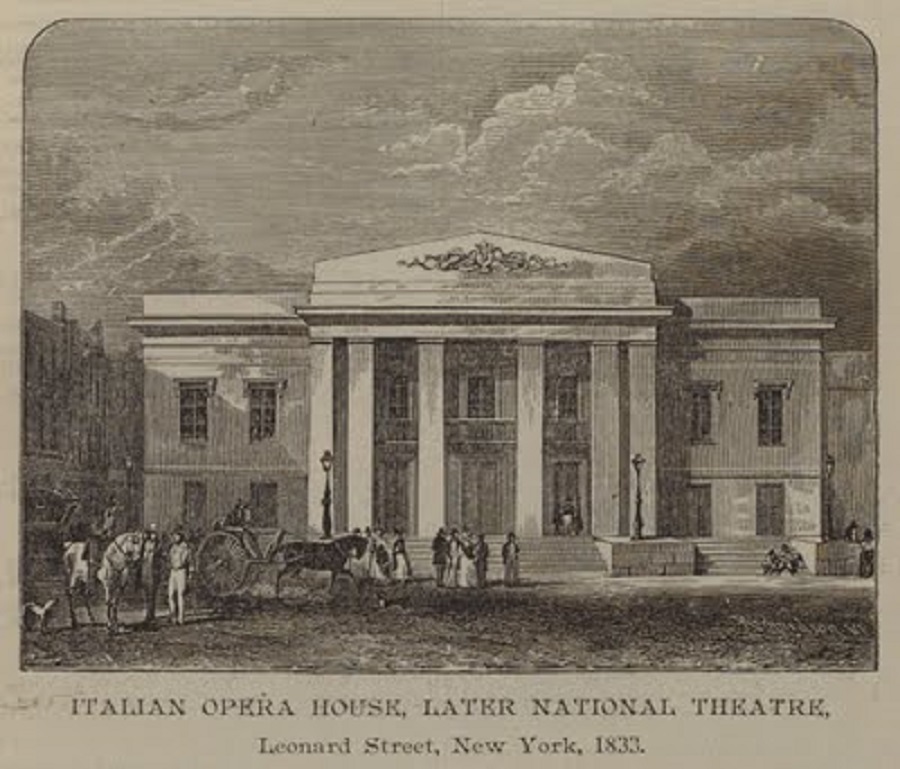
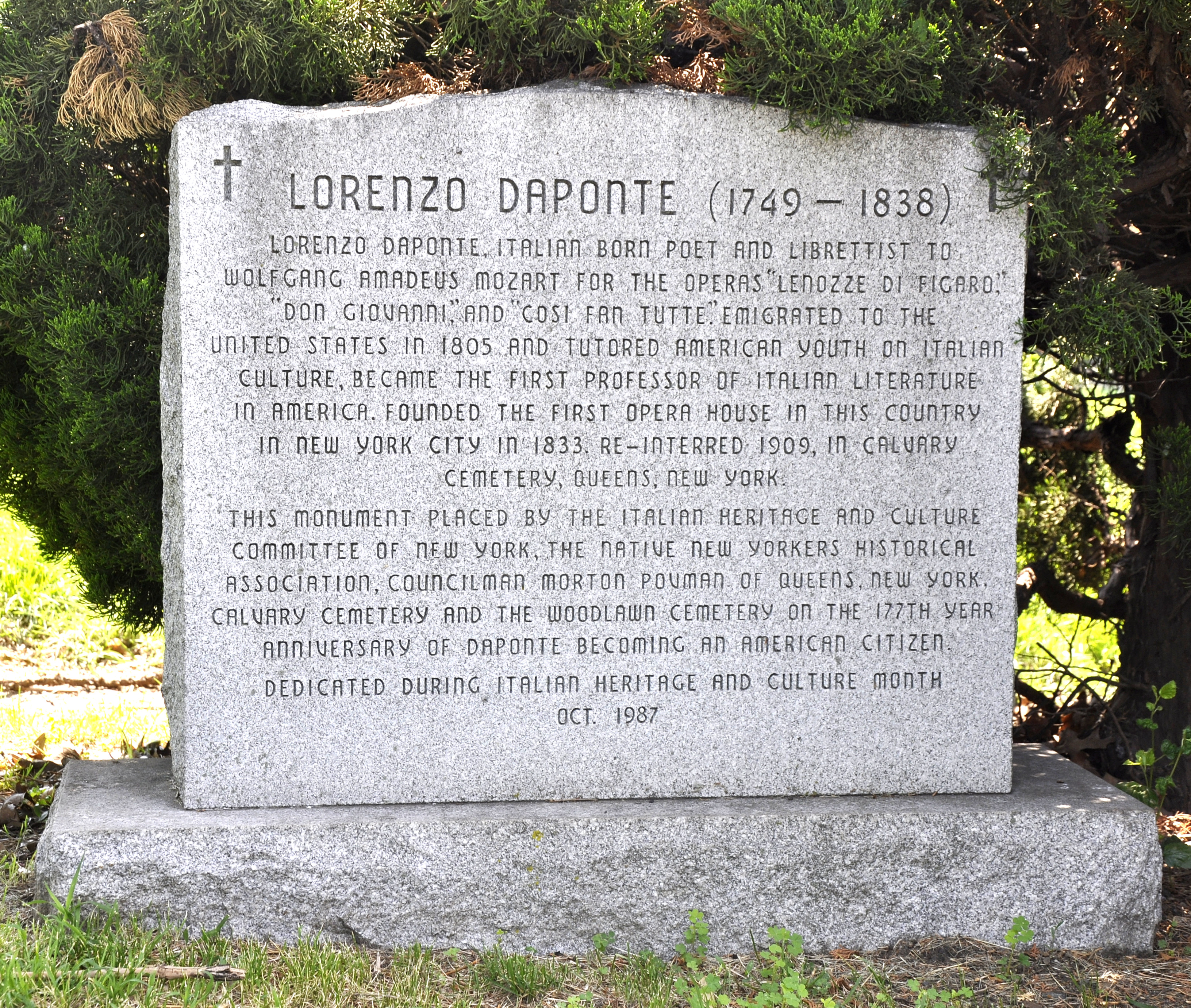
What always makes others weep is for them a cause for laughter
And amidst the tempests of this world, they will find sweet peace.”
